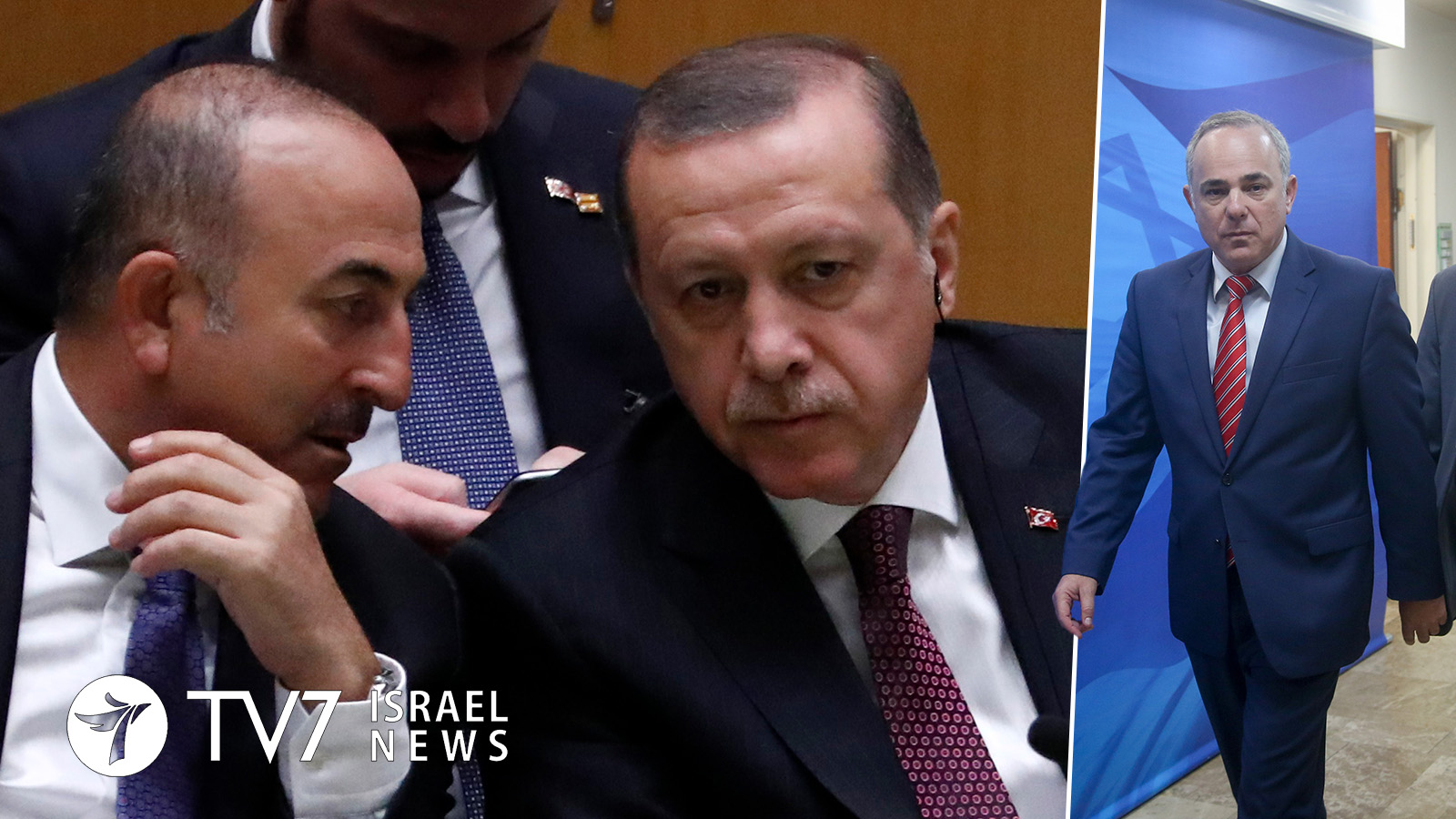Israeli Energy Minister Yuval Steinitz has been invited to attend an official conference in Turkey, in what may signal a thaw in frosty relations between the two countries.
Steinitz participation at the aptly-titled “Innovative Diplomacy: A new age, new approaches” forum slated to be held in Antalya in June would mark the first time a Jerusalem official has visited the country since Turkey recalled its ambassador to Israel in 2018.
Onetime warm bilateral ties between the Jewish State and its strong Muslim ally were severely strained since the 2010 Mavi Marmara incident when 10 pro-Palestinian extremists from Turkey were killed after they violently attacked Israeli commandos trying to enforce the naval blockade of the Hamas-run Gaza Strip.
Israel later paid Turkey $20 million in compensation as a key component of a deal signed in June 2016 to restore ties.
The rift widened again when Turkish President Recep Tayyip Erdoğan condemned Israel as a “terrorist state” after 60 Palestinian rioters believed affiliated with the Islamist-Hamas terror group were killed in 2018 by the IDF during violent protests on the Gaza border.
Israel accused Turkey of giving passports to a dozen Hamas members in Istanbul in August 2020, describing the move as “a very unfriendly step.”
At the end of last year, Erdoğan indicated Ankara’s interest in bringing ties with Jerusalem “to a better point” despite having criticized the Abraham Accords between Israel and 4 Muslim states. While speaking to reporters after Friday prayers in Istanbul on 25 December, the Turkish President revealed, “Our relations with Israel on intelligence have not ceased anyway, they are still continuing” despite having some “difficulties with the people at the top.” He nevertheless underscored that Israel’s “merciless acts” toward the Palestinians “is our red line,” and that “we differ from Israel in terms of our understanding of both justice and the territorial integrity of countries.”
A possible Jerusalem-Ankara rapprochement is being driven by the prospect of lucrative Mediterranean gas deals, in addition to simmering tensions and increasing isolation from Europe over Turkish provocations.
Erdogan infuriated Greece by declaring a December 2019 energy exploration deal with Libya that delineated maritime boundaries that encroached upon Athens’ territorial waters. That development was countered by the signing of a huge pipeline deal between Israel, Greece and Cyprus in January 2020.
Minister Steinitz told reporters during a visit to Cyprus on 9 March to discuss the Eastern Mediterranean Natural Gas Pipeline (EastMed) that Israel was prepared to cooperate with Turkey on the project. Israel is also a founding member of the EastMed Gas Forum – which includes Egypt, France, Italy, Jordan, the Palestinian Authority, Greece and Cyprus – but not Turkey. The Israeli Energy Minister said previous talks about exporting gas to Turkey had yet to yield success but expressed hope that Ankara could join the EastMed Forum in the future. The project is set to be the world’s deepest and longest 1,900-kilometer (1,180-mile) underwater pipeline stretching from Israel to Europe through Greece and Italy, expected to be completed in 5 years.
During a Likud campaign event the following day, Israeli Prime Minister Benjamin Netanyahu confirmed that his government Israel was “engaged in talks with Turkey” about natural gas in the eastern Mediterranean Sea,” but declined to disclose further details.
Steinitz’ invitation to the Antalya conference was extended by Turkish Foreign Minister Mevlüt Çavuşoğlu, who was cited by the state-run Anadolu news agency as saying earlier this week that while Ankara maintains economic ties with Jerusalem that it will reevaluate political relations if the next Israeli government implements new policies.
